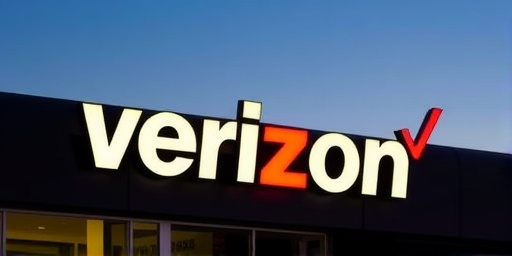In a seismic shift for the telecommunications giant, Verizon has unveiled plans to eliminate more than 13,000 positions across its workforce, signaling a profound corporate restructuring aimed at streamlining operations and navigating turbulent market dynamics. This announcement, which affects roughly 10% of the company’s 130,000 employees, underscores the aggressive cost-cutting measures telecom firms are adopting amid intensifying competition and technological disruptions. The layoffs, set to roll out over the next several months, represent one of the most substantial job cuts in the U.S. economy this year, drawing immediate scrutiny from labor advocates and economic analysts.
- Verizon Details Scope and Timeline of Layoff Initiative
- Driving Forces Behind Verizon’s Corporate Restructuring Push
- Ripple Effects on the U.S. Economy and Telecom Sector
- Stakeholder Reactions and Employee Sentiments to Verizon Layoffs
- Verizon’s Path Forward: Investments and Potential Rebound Opportunities
Verizon‘s move comes at a pivotal moment for the industry, where legacy providers grapple with the rise of 5G networks, streaming services, and cord-cutting trends that have eroded traditional revenue streams. Company executives framed the decision as essential for ‘reorienting’ the business toward future growth, emphasizing investments in wireless infrastructure and digital services. As the U.S. economy faces inflationary pressures and supply chain challenges, this restructuring highlights broader corporate strategies to enhance operational efficiency and shareholder value.
Verizon Details Scope and Timeline of Layoff Initiative
Verizon’s layoffs will span multiple divisions, including customer service, network engineering, and administrative roles, with the heaviest impacts felt in legacy wireline operations and regional offices. According to an internal memo obtained by industry watchers, the company plans to initiate the reductions in phases, starting with voluntary severance packages offered to eligible staff. For those not opting in, involuntary terminations are slated to begin in Q2 of the fiscal year, potentially affecting hubs in New York, Texas, and California.
The scale of these job cuts is staggering: 13,000 positions equate to a workforce reduction that rivals major tech layoffs from giants like Meta and Amazon earlier this year. Verizon’s human resources head, in a statement to employees, noted that ‘these difficult decisions are necessary to position Verizon for long-term success in a rapidly evolving landscape.’ Specific statistics reveal that about 40% of the cuts target underperforming segments like fixed broadband, where subscriber losses have accelerated due to fiber-optic expansions by competitors such as AT&T and regional players.
To mitigate immediate fallout, Verizon has committed to providing outplacement services, including resume workshops and job placement assistance, for affected workers. However, details on severance terms remain sparse, with reports suggesting packages ranging from 8 to 16 weeks of pay based on tenure. This structured approach to the layoffs aims to minimize legal challenges, though employee forums are already buzzing with concerns over potential age discrimination in selection criteria.
Driving Forces Behind Verizon’s Corporate Restructuring Push
At the heart of Verizon’s corporate restructuring is a strategic pivot to prioritize high-margin wireless and enterprise solutions over outdated landline services. CEO Hans Vestberg, in a recent earnings call, highlighted how ‘changing market conditions’—including the saturation of smartphone penetration and the surge in data demands from AI and IoT applications—are forcing a reevaluation of resource allocation. The company reported a 2.5% dip in overall revenue last quarter, largely attributed to declining wireline income, prompting executives to target $2 billion in annual cost savings through these job cuts.
Operational efficiency is another cornerstone of this overhaul. Verizon’s restructuring includes consolidating data centers and automating routine tasks with AI-driven tools, which could reduce headcount needs by up to 20% in IT departments. Analysts point to the company’s $52.9 billion debt load from spectrum auctions and acquisitions as a pressing factor, with job cuts freeing up approximately $1.5 billion in payroll expenses annually. ‘This is classic telecom evolution,’ said telecom expert Sarah Jenkins from Forrester Research. ‘Verizon is shedding legacy bloat to fund 5G dominance, but at the expense of its most loyal workforce segments.’
Moreover, regulatory pressures play a role. The FCC’s push for nationwide broadband coverage has Verizon redirecting funds toward rural expansions, away from urban maintenance roles. Internal audits, leaked to Reuters, indicate inefficiencies in overlapping teams, justifying the broad scope of these layoffs. By streamlining, Verizon aims to boost its EBITDA margins from 45% to over 50% within two years, aligning with investor expectations in a sector where stock prices hinge on profitability metrics.
Ripple Effects on the U.S. Economy and Telecom Sector
Verizon’s job cuts are poised to send shockwaves through the U.S. economy, exacerbating unemployment trends in an already volatile job market. With the national unemployment rate hovering at 3.8%, these 13,000 layoffs could strain local economies in Verizon’s key operational states. For instance, New Jersey, home to the company’s headquarters, might see a 0.5% uptick in regional unemployment, according to preliminary estimates from the Bureau of Labor Statistics. This comes atop 2023’s tally of over 260,000 tech-related job losses, positioning Verizon’s action as a bellwether for further corporate belt-tightening.
In the broader telecom arena, Verizon’s restructuring could accelerate industry consolidation. Rivals like T-Mobile, which has aggressively poached customers through mergers, may capitalize on the instability by offering retention incentives. The U.S. economy, still recovering from pandemic-induced disruptions, faces added pressure as corporate restructuring becomes a norm for Fortune 500 firms. Economists warn that such moves could dampen consumer spending, given that many laid-off workers in mid-tier roles earn median salaries of $70,000 annually.
Supply chain implications are also noteworthy. Verizon’s reduced workforce might slow network upgrades, indirectly affecting vendors like Ericsson and Nokia, who rely on Verizon contracts for equipment deployment. On a positive note, the restructuring could spur innovation, as reallocated funds pour into R&D for edge computing and satellite integrations, potentially creating higher-skilled jobs down the line. However, short-term economic drag is evident: a Moody’s report forecasts a 0.1% GDP hit from aggregated 2024 layoffs, with telecom contributing significantly.
- Key Economic Indicators Affected: Increased claims for unemployment benefits in telecom-heavy regions.
- Sector-Wide Trends: Similar cuts at AT&T (9,000 jobs in 2022) signal a pattern of efficiency drives.
- Consumer Impact: Potential service disruptions during transition periods.
Stakeholder Reactions and Employee Sentiments to Verizon Layoffs
Reactions to Verizon’s layoffs have been swift and polarized. Labor unions, including the Communications Workers of America (CWA), which represents thousands of Verizon employees, condemned the move as ‘corporate greed run amok.’ CWA President Chris Shelton stated, ‘While executives pocket millions in bonuses, hardworking Americans are cast aside in this ruthless restructuring.’ Protests are planned at Verizon’s Basking Ridge, NJ, offices, with demands for better severance and retraining programs.
Employees, speaking anonymously to news outlets, express a mix of shock and resignation. ‘We’ve seen the writing on the wall with all the tech upgrades, but 13,000 feels like overkill,’ shared one 15-year veteran in a Virginia call center. Social media platforms like LinkedIn and Reddit are flooded with Verizon staff sharing tips on navigating the job market, highlighting fears over ageism and skill obsolescence in a field dominated by younger, digital-native hires.
Investors, conversely, have responded favorably. Verizon’s stock rose 3% in after-hours trading following the announcement, reflecting confidence in the cost-saving trajectory. Wall Street analysts from JPMorgan upgraded the stock to ‘neutral,’ citing the layoffs as a ‘necessary purge’ for margin expansion. Community leaders in affected areas, such as Dallas, are calling for federal intervention, including extended unemployment benefits under the CARES Act framework, to cushion the blow on local economies.
From a diversity perspective, reports suggest disproportionate impacts on older workers and women in administrative roles, prompting calls for equity audits. Verizon has pledged to maintain its DEI commitments during the transition, but skepticism abounds among advocacy groups like the NAACP, who view the layoffs as exacerbating economic disparities in minority-heavy workforces.
Verizon’s Path Forward: Investments and Potential Rebound Opportunities
Looking ahead, Verizon’s corporate restructuring positions the company for a more agile future, with executives outlining a $10 billion investment in 5G and fixed wireless access over the next three years. This capital reallocation, funded in part by the job cuts, aims to capture a larger share of the enterprise market, where demand for secure, high-speed connectivity is booming. Partnerships with cloud providers like AWS and Microsoft could yield new revenue streams, offsetting legacy losses.
The U.S. economy may benefit indirectly if Verizon’s efficiency gains translate to lower service prices, stimulating broadband adoption in underserved areas. However, the human cost lingers: retraining programs for laid-off workers could take years to yield results, and policymakers are urged to expand initiatives like the Workforce Innovation and Opportunity Act to support displaced telecom professionals.
As Verizon navigates this transformation, the coming quarters will test its ability to balance cost discipline with innovation. With regulatory scrutiny from the FTC on merger activities and labor from the DOL on layoff notifications, the company must tread carefully. Ultimately, these job cuts underscore a harsh reality in the U.S. economy: adaptation often demands sacrifice, but strategic foresight could pave the way for renewed growth in the telecom powerhouse.








